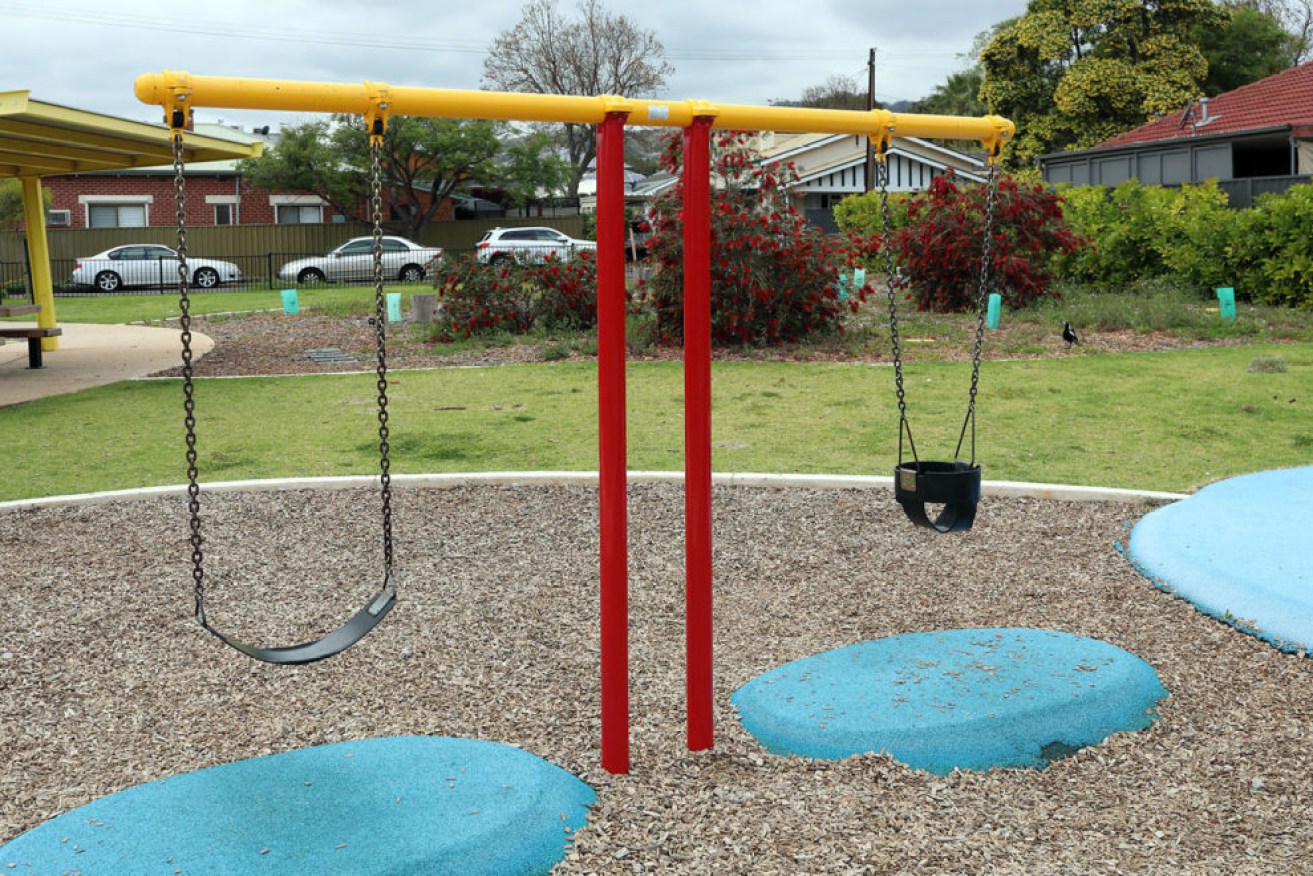Listen to the children during global crisis
Many SA children have returned to school, but the pandemic continues to have an impact on their lives. Helen Connolly explains why – and how adults can help.

Photo: Tony Lewis/InDaily
Late in 2019, I sent ‘Tell Helen’ postcards out to thousands of 8-12 year olds across South Australia.
Each postcard had a space for children to tell me what they like, what they want, what they worry about, and what they would do if they were the boss of South Australia. I received 8,429 responses from South Australian kids in this age-group.
What the analysis of this large data set uncovered were four main areas in their lives that matter most – school, sport, hanging out and travel. Precisely the areas of life most affected by COVID-19.
This tells us that children in this age group are likely to be feeling the impact of COVID-19 in ways that involve a loss of connection with those places, activities, and people who are part of their daily routines.
It’s not rocket science but it does emphasise how important it us for us to reassure this age-group that their lives will not be like this forever, and that it won’t be too much longer before they can return to the activities they like most.
The opportunity to return to school last week was probably welcomed by the majority of children in this age-group. This is because what they’ve told us about school is that it means much more in their lives than just learning.
School is where they talk about enjoyment, gain fulfilment and connect socially. It’s their regular venue for play and socialising, and is generally ‘a safe place to go’. It’s where they hang out with friends and participate in formal and informal sport and recreation activities.
Recess and lunch are important in their daily routine too – not just as breaks from formal lessons, but as the space in which much of the social and emotional benefits of being together is ‘played out’. Some children speak about play and learning in the same breath. Others reflect more exclusively on the academic side of school life, and the way they become better at the things they care about.
The importance of sport amongst this age group cannot be overstated. The fun, fitness, enjoyment, competition, friendship, rivalry, success, fan based belonging and skills that sport provides, fuels in many children this age, that dream of becoming a professional sportsperson.
The importance of sport in the lives of 8-12 year olds is palpable. When access to sport is unavailable due to financial reasons, transport challenges or social isolation, a large part of a child’s identity and enjoyment of life at this age is curtailed.
Likewise, the simple enjoyment of being with the people they care about in fun and frivolous ways, through a game, or just through an opportunity to talk, is equally important. There is a direct relationship between hanging out and having fun, feeling good or debriefing with people your own age. Children speak about the importance of being able to hang out safely in malls, fast food outlets, retail venues, and civic spaces such as parks and playgrounds, as being key to their overall sense of wellbeing.
Travel is perhaps a more surprising area of interest to many children this age. For some it is aspirational; expressing a desire to see and experience life in other parts of Australia and around the world. For others, wanting to travel is more a practical concern expressing their desire to connect with members of their extended family, or with friends whom they are separated from by long distances. For these children, travel is not just a “nice opportunity to have”. It’s a major way of keeping connected to those they love, as well as to individual hopes and dreams.
The impact of COVID-19 on children in this age group is real and it should be acknowledged by the adults in their lives. If adults who love and care for children this age were to stop, listen and directly respond to the concerns being expressed by children this age, they would send the strong message that what they feel matters.
Even better, if leaders at the state and national levels addressed this age-group directly, in the same way leaders in Norway and New Zealand have done, they would show that they understand how tough it must be for this age group right now and that they’re doing everything they can to ensure their lives return to normal as quickly as possible.
By actively listening and reassuring these children that as well as school, team sport, hanging out with family and friends and the opportunity to travel will return to their lives in the not too distant future, we will help to allay many of their fears and build the kind of trust and respect that will pay dividends in future years.
Helen Connolly is SA Commissioner for Children and Young People
Want to comment?
Send us an email, making it clear which story you’re commenting on and including your full name (required for publication) and phone number (only for verification purposes). Please put “Reader views” in the subject.
We’ll publish the best comments in a regular “Reader Views” post. Your comments can be brief, or we can accept up to 350 words, or thereabouts.




